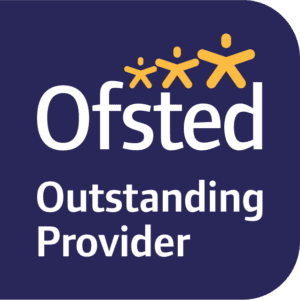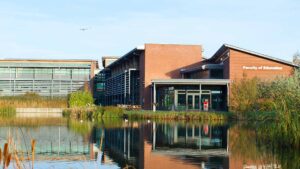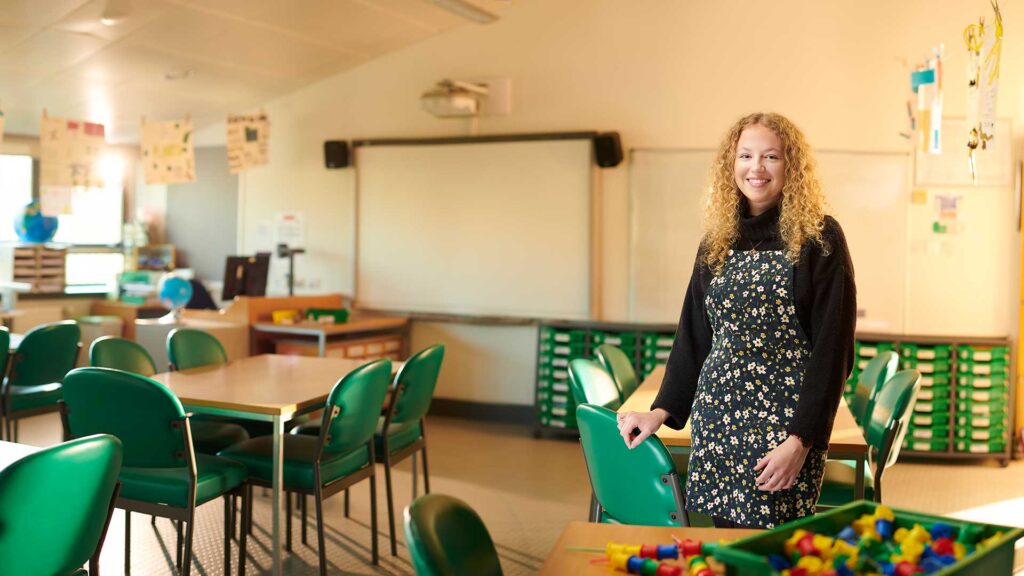Primary Mathematics Specialist with QTS PGCE
GOV.UK code: X1G2
Make mathematics more engaging, more enriching and more enjoyable. Our PGCE Primary Mathematics Specialist with QTS course will make you an expert in teaching this subject to children aged 5-11. And you’ll achieve recommendation for Qualified Teacher Status.
Overview
| Course length: | 1 year full-time |
|---|---|
| Start dates: | September 2025 September 2026 |
| Location: | Edge Hill University |
| Example offers: | 2:2 or above (or equivalent). No specific subjects required View full entry criteria |
| Subject(s): | Education and Teaching |
| Faculty: | Education |
| Department: | Primary and Childhood Education |

Successful completion of the programme leads to recommendation for Qualified Teacher Status (QTS).
Every school needs a mathematics expert. That could be you. Our PGCE Primary Mathematics Specialist with QTS course provides a high-quality teacher training experience. You’ll learn how to educate children aged 5-11 in all primary curriculum subjects, and craft specialist knowledge in teaching mathematics.
You’ll spend lots of time on placement in schools, where we’ll support you in meeting the Teachers’ Standards. You’ll gain the essential professional skills and knowledge for a two-year induction as an early career primary teacher and mathematics specialist.
Graduating as a primary mathematics specialist, you’ll be a role model and a leader to your colleagues. You’ll set an example for teaching in ways that are enriching, engaging and inspiring for young children.
 Ofsted Outstanding Provider
Ofsted Outstanding Provider
Course features
-
Ofsted outstanding provider for Initial Teacher Education
-
Professional accreditation
-
Professional practice placements
-
International students can apply
What you'll study
The course is made up of four key elements. The first is academic study at Masters level. This will teach you vital academic and professional skills for teaching and exploring the principles of learning and curriculum design. You will develop your knowledge of evidence-informed practice, which you will be able to apply to your development as a teacher. You’ll also get to work on your specialist knowledge of primary mathematics.
The next element is the development of professional curriculum subject knowledge. You’ll learn how to make sure children progress with, and enjoy, their learning, become familiar with the National Curriculum for England, and develop approaches for teaching each subject. Teaching workshops will boost your confidence in managing classrooms.
You’ll develop subject and teaching knowledge through professional placements. This is essential for achieving qualified teacher status, and will allow you to spend a significant amount of time in schools and other educational settings. You’ll also collaborate within your community of peers and tutors through online study. Finally, there’s the mathematics conferences element. You’ll attend events (sometimes scheduled at weekends) and engage with international and historical perspectives of teaching primary mathematics.
How you'll study
Your learning experience will include lectures, seminars, workshop sessions and tutorials delivered using a hybrid blend of on-campus and online teaching. Independent study will be supported by materials provided through the virtual learning environment using a range of online teaching tools and applications. Your university-based experiences will be underpinned by reference to current research.
You will also undertake Intensive Training and Practice (ITAP) as a specific and focused element of our teacher training curriculum. This is designed to consolidate your knowledge of effective teaching, and enable you to rehearse and obtain feedback from experts on your practice. Our ITAPs are designed to utilise the latest research and technology as well as draw on the outstanding mentors, tutors, and teacher expertise from across our partnership.
Over the course of your training, you will have the opportunity to participate in several days of Intensive Practice focusing on aspects of pivotal practice such as; behaviour management, scaffolding, professional behaviours and questioning.
During periods of ITAP, your timetable may differ and you may be required to attend campus and/or a placement on days outside of the usual pattern.
You will spend a significant amount of time undertaking professional practice placements, normally in key stages 1 and 2 in schools and other educational settings. During these experiences you will have opportunities to observe the work of expert practitioners. You will reflect on and discuss this practice with those practitioners and your trained school-based mentor. As you take on increasing responsibility for children’s learning and development, you will start by working with small groups under the direction of the class teacher, sometimes with a student teacher partner, and progress to planning for and working with the whole class for significant periods of time, managing the learning of every child.
How you'll be assessed
Assessment strategies will include presentations to different audiences, academic essays individually tailored around your own professional interests, and ongoing task submission.
During professional practice your school-based mentor will assess your development through reflective conversations, reviewing and discussing your planning and assessment records, observing your teaching, and gathering the perspectives of other adults and, of course, of the children who work with you.
In all cases, you will be given clear assessment guidance. The assessment criteria will be shared with you and you will be given constructive feedback to help you to set targets and identify actions to help you make further progress.
You will compile an electronic portfolio that brings together evidence to demonstrate your professional development and your ability to meet the Teachers’ Standards.
There are no formal written examinations as part of the current assessment methods on this programme.
Who will be teaching you
The Faculty of Education has been at the forefront of teacher education for over 135 years and today enjoys the enviable position of being one of the country’s leading providers of education, training and research for the children’s workforce.
You will be taught in University and on professional practice in schools by a range of highly qualified and experienced teachers and tutors who are dedicated to excellence in primary education and who will model high quality practice to enable you to develop your own teaching style.
You will be supported throughout your programme by a personal academic tutor who will help you to manage your workload, engage with your academic studies, prepare for professional practice placements and secure your first teaching post.
The Edge Hill lead mentors and mentor leadership team play an important part in your teacher training as experts in their field. They have a deep knowledge of the trainee curriculum and support trainees and mentors to make progress providing guidance and support on aspects of the curriculum and assessment.
Entry criteria
Entry requirements (2025 / 2026)
When you apply, you are expected to have:
- A commitment to, and understanding of, primary education, and specifically Mathematics education, demonstrating the personal attributes, values and motivation required to train as a teacher.
- GCSE English Language or English Literature and Mathematics at Grade C or Grade 4 or above (or equivalent qualification)
- GCSE Science at Grade C or Grade 4 or above (or equivalent)
- Suitable presentational qualities, including a good standard of written English.
- A degree equivalent to UK first-class or second-class honours (2:2 or above). No specific subjects are required.
Please note, for the purposes of initial teacher training, level 2 literacy and numeracy qualifications are not considered as equivalent to GCSE Grade C or Grade 4 in English Language or English Literature and Mathematics.
An academic reference is required for all students who have graduated in the last five years. An interview forms part of the selection process, which can be conducted online or face to face.
If you accept a formal offer from Edge Hill University you will be required to meet the Department for Education’s standards for physical and mental fitness to teach and clearance to work with children. Further information, including a Declaration of Health questionnaire and details of how to apply for a Disclosure and Barring Service (DBS) Enhanced Disclosure will be sent to you after you have firmly accepted an offer.
English language requirements
International students require IELTS 6.5, with a score no lower than 6.0 in each individual component, or an equivalent English language qualification.
If your current level of English is half a band, one band, or one-and-a-half bands lower, either overall or in one or two elements, you may want to consider our Pre-Sessional English course.
How to apply
Apply full-time
Read our guide to applying for PGCEs and Postgraduate Teacher Training to find out more about the application process.
International
Please see our international student pages for further information about how to apply as a prospective international student.
This course is now closed to international applications for 2024 entry.
Should you accept an offer of a place to study with us and formally enrol as a student, you will be subject to the provisions of the regulations, rules, codes, conditions and policies which apply to our students. These are available at www.edgehill.ac.uk/studentterms.
There’s plenty of opportunities to come take a look around campus. Attend one of our open days to see what life at Edge Hill University is all about.
Book an open day
Facilities
 The Faculty of Education enjoys the enviable position of being one of the country’s leading providers of transformative education, training and research for the teaching and education workforce. Housed in a state-of-the-art £9m building, the Faculty of Education enjoys a stunning setting from both its lakeside and piazza buildings.
The Faculty of Education enjoys the enviable position of being one of the country’s leading providers of transformative education, training and research for the teaching and education workforce. Housed in a state-of-the-art £9m building, the Faculty of Education enjoys a stunning setting from both its lakeside and piazza buildings.
Facilities in the lakeside building include a 300-seat lecture theatre, five well-equipped ICT suites, and 18 teaching rooms complete with the latest technology.
Our nearby piazza building houses our Research Hub and our Secondary and Further Education department including a lecture theatre and a number of seminar rooms.
Where you'll study
Finance
Tuition fees
UK Full-Time
£9,535
for the course
International
£17,000
for the course
EU/EEA and Swiss students who have settled or pre-settled status under the EU Settlement Scheme, as well as Irish nationals, may be eligible for the UK tuition fee rate.
Financial support
Applicants to Student Finance should apply for undergraduate funding and not a postgraduate loan. Subject to eligibility, UK students joining this course can apply for an additional Bursary from the government. Please see updated eligibility from the bursaries and scholarships page.
Subject to eligibility, UK students joining this course can apply for a Tuition Fee Loan from the Government to cover the full cost of tuition fees. UK students enrolling on the course may also be eligible to apply for additional maintenance loan funding to help with living costs.
Scholarships
We offer a range of scholarships, which celebrate the determination, commitment and achievement of our students. Many of our scholarships are awarded automatically. There are some however, where you will need to be involved in an application or nomination process. To find out more about our scholarships and check your eligibility, please visit our dedicated scholarships pages.
Money Matters
Please view the relevant Money Matters guide for comprehensive information about the financial support available to eligible UK students, together with details of how to apply for potential funding.
EU/EEA and Swiss students who have settled or pre-settled status under the EU Settlement Scheme may be eligible to apply for financial support. Irish nationals can ordinarily apply to Student Universal Support Ireland (SUSI). If you are an EU student who does not have settled or pre-settled status, or are an international student from a non-EU country, please see our international student finance pages.
Your future career
This PGCE is accredited by the Department for Education. Successful completion of the programme will enable you to gain recommendation for Qualified Teacher Status (QTS). You will be well placed to progress into employment as an early career teacher within a primary school.
You’ll know how to deliver the key stage 1 and 2 curriculum in creative and engaging ways. With excellent classroom skills and specialist knowledge of primary mathematics, you’ll meet and exceed the national standards for Qualified Teacher Status. One day, you may be able to take on a primary mathematics leadership role within a school.
You’ll know how to reflect on your own professional progress and think analytically about education policy developments. You’ll complete a live exam called a VIVA at the end of the course, which your personal tutor will support you with. This is your opportunity to celebrate all you’ve achieved throughout the degree. You’ll also take a professional portfolio out with you into your graduate career.











